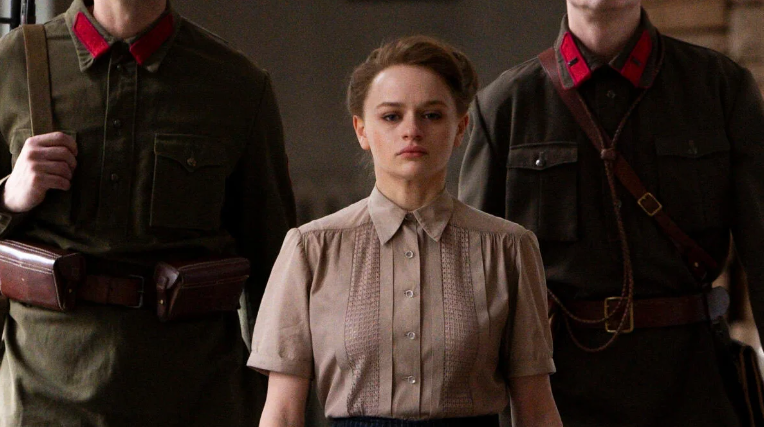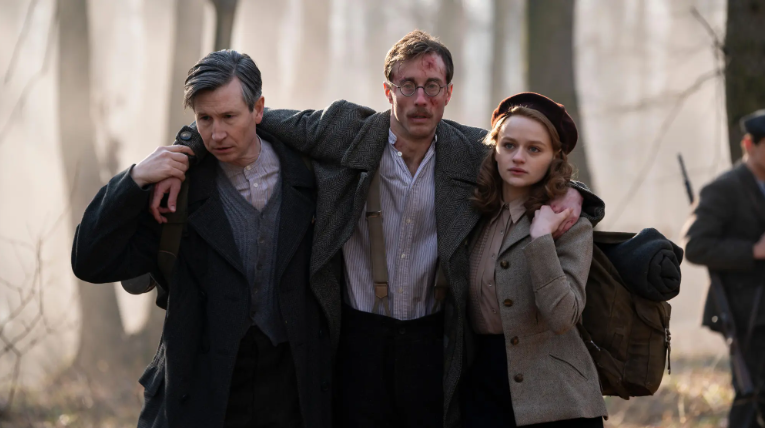Hulu’s Holocaust drama, We Were the Lucky Ones, has been receiving mixed reviews since its release. The series follows the story of a Jewish family’s struggle to survive during the atrocities of World War II. While some viewers praise the show for its powerful storytelling and emotional depth, others have criticized it for its inaccuracies and sensationalized portrayal of historical events.
The real story behind the show is a complex one, as it attempts to capture the horrors of the Holocaust while also balancing the need for entertainment and engagement. The creators of the series have faced backlash for their decision to take creative liberties with the source material, but argue that they needed to do so in order to make the story more accessible to a modern audience.
Ultimately, the real story behind We Were the Lucky Ones is a reminder of the importance of remembering and honoring the victims of the Holocaust, while also recognizing the challenges of translating such a horrific chapter of history into a compelling and engaging narrative.

The Historical Accuracy of We Were the Lucky Ones: Fact vs. Fiction
We Were the Lucky Ones is a powerful novel that follows the Kurc family as they navigate the horrors of World War II. While the book is based on the true story of the author’s family, there are some aspects of the novel that have been fictionalized for dramatic effect. For example, the characters’ experiences during the war have been condensed and altered to fit within the confines of a novel.
Additionally, certain events in the book may have been embellished or exaggerated to create a more compelling narrative. However, despite these liberties taken with the story, the overall historical accuracy of We Were the Lucky Ones remains largely intact. The author conducted extensive research into her family’s history and consulted with relatives to ensure that the novel stayed true to the spirit of their experiences.
While some details may have been changed, the core events and emotions depicted in the novel are based on real-life events. Overall, We Were the Lucky Ones offers readers a poignant and gripping portrayal of one family’s struggle to survive and reunite during one of the darkest periods in human history. By blending fact with fiction, the novel brings to life the untold stories of those who endured the Holocaust and serves as a powerful reminder of the resilience and strength of the human spirit.
The Lives of the Real Individuals Portrayed in the Series
The individuals whose lives are portrayed in the series have experienced a multitude of challenges and obstacles throughout their journeys. From growing up in poverty-stricken neighborhoods to facing discrimination and prejudice, these real individuals have persevered through it all. Their stories shed light on the resilience and strength that exists within each of them, as they navigate through a world that is often unforgiving and harsh.
Despite the hardships they have faced, these individuals have managed to rise above their circumstances and carve out a life for themselves. Through their experiences, viewers are able to gain a deeper understanding of the complexities of human nature and the various factors that shape a person’s identity. The series serves as a platform for these real individuals to share their unique perspectives and voices, allowing for a more nuanced and empathetic portrayal of their lives.
By delving into the struggles and triumphs of these individuals, the series offers a glimpse into the complexities and intricacies of human existence, highlighting the importance of empathy and understanding in a world that is often quick to judge and condemn. Ultimately, the lives of the real individuals portrayed in the series serve as a powerful reminder of the resilience and strength that lies within each of us, no matter the circumstances we may face.

The Impact of the Holocaust on the Characters’ Journeys
The Holocaust had a profound impact on the characters’ journeys in various ways. For many, the experience of surviving such a catastrophic event shaped their identities and influenced their decisions moving forward. Some characters, like survivors of concentration camps, grappled with profound trauma and loss that colored their outlook on life.
They struggled with survivor’s guilt and the weight of their memories, making it difficult for them to move on from the horrors they witnessed. Others, who may not have directly experienced the Holocaust but were impacted by it in other ways, such as through the loss of family members or displacement, also faced their own challenges. These characters often carried a sense of displacement and a longing for a sense of belonging, as they navigated a world that had been forever changed by the atrocities of the Holocaust.
Overall, the characters’ journeys were deeply influenced by the Holocaust, as they grappled with the legacy of such a traumatic event and sought to find meaning and purpose in the aftermath. The impact of the Holocaust on these characters’ journeys serves as a reminder of the enduring effects of such a dark period in history, and the resilience and strength of those who survived it.
How We Were the Lucky Ones Brings Historical Events to Life
How We Were the Lucky Ones by Georgia Hunter is a powerful novel that vividly brings historical events to life. The story follows the Kurc family, a Jewish family living in Poland during World War II. Through their experiences, the reader is immersed in the horrors of the Holocaust and the challenges faced by those trying to survive in a war-torn world. Hunter expertly weaves together the personal stories of each family member, showing how they each navigate the dangers and uncertainties of the time.
The detailed descriptions of the settings and events make the reader feel as though they are right there alongside the characters, experiencing the fear, desperation, and hope that they feel. By focusing on the individual experiences of the Kurc family, Hunter humanizes the larger historical events, making them more relatable and impactful for the reader.
The novel serves as a poignant reminder of the resilience and strength of the human spirit in the face of unimaginable adversity. Through the lens of this one family’s story, we are able to gain a deeper understanding of the larger historical events that shaped their lives. How We Were the Lucky Ones is a moving and gripping portrayal of the human experience during one of the darkest periods in history, and it serves as a testament to the power of storytelling in bringing history to life.

Critical Reception and Viewer Reactions to the Historical Representation
The critical reception and viewer reactions to historical representation can vary greatly depending on various factors such as accuracy, sensitivity, and perspective. Some viewers may appreciate a more realistic and nuanced portrayal of historical events, while others may prefer a more dramatized and entertaining version.
Critics often analyze the historical accuracy of a representation, looking for any inaccuracies or misinterpretations that may detract from the overall authenticity of the story being told. Viewer reactions can also be influenced by personal connections to the historical events being depicted, with some finding comfort in seeing their history portrayed on screen, while others may feel offended or misrepresented.
Ultimately, the reception of historical representation is a complex and multifaceted issue that requires careful consideration and understanding of the various perspectives at play. It is important for creators of historical content to be mindful of the impact their representations may have on audiences and to strive for a balanced and respectful portrayal of the past. By engaging in thoughtful and critical discussions about historical representation, we can better appreciate the complexities of our shared history and work towards a more inclusive and accurate understanding of the past.
